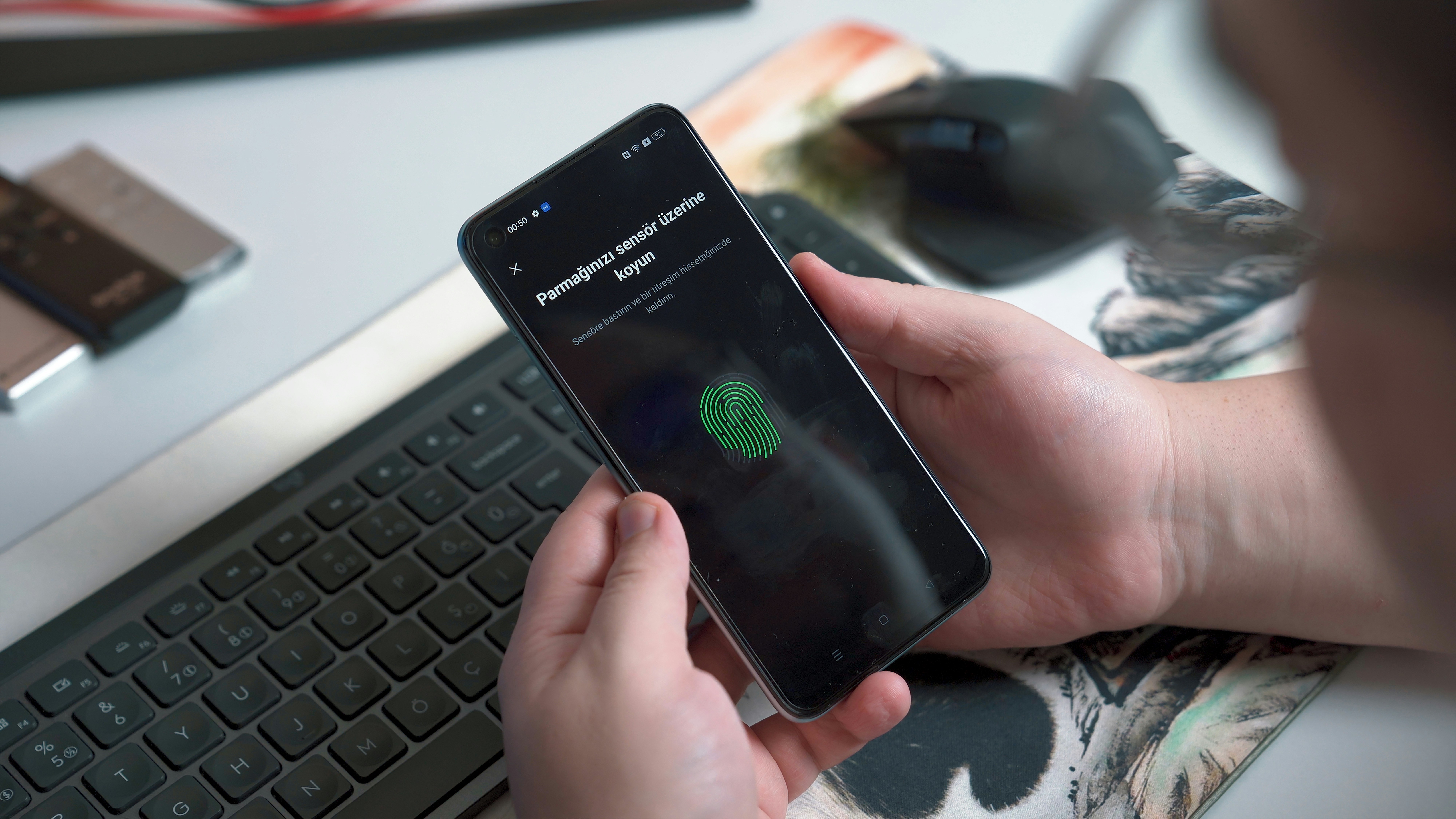Picture this: you’re innocently going about your day, sending text messages left and right, when suddenly a terrifying thought crosses your mind. Can your spouse, that sneaky little detective, get their hands on copies of your text messages? Cue the dramatic music. Well, fear not, dear reader, because we’ve got all the juicy details for you.
From the mysterious Sphinx spy app that catches cheating spouses to installing it without anyone knowing – even remotely! – we’ve uncovered all the secrets. So sit back, relax, and prepare to be both enlightened and amused by this fascinating journey into the world of digital snooping.
This image is property of images.unsplash.com.
Do spouses have the right to access each other’s text messages?
In most cases, spouses do not have the legal right to access each other’s text messages without the other person’s consent. Even if the phone is shared or paid for jointly, it’s still considered a private device, and accessing someone’s private messages without their permission can be a violation of their privacy.
However, there are some exceptions to this rule. For example, if there is suspicion of infidelity or other wrongdoing, a spouse may be able to obtain text message copies through legal means, such as by obtaining a court order or through discovery in a divorce proceeding.
Legal methods for obtaining text message copies
If there is a valid reason to obtain copies of someone’s text messages, there are legal methods for doing so. The most common way is through a court order, which can be obtained if there is a legitimate reason to believe that the messages contain evidence of a crime or wrongdoing.
Another way to obtain text message copies is through discovery in a legal proceeding, such as a divorce or custody case. In these cases, both parties may be required to turn over their devices and provide access to their messages.
It’s important to note that even if text message copies are obtained through legal means, there may still be consequences for accessing someone’s private messages without their permission.
Possible consequences of accessing someone’s text messages without permission
Accessing someone’s private messages without their permission can have serious consequences, both legally and within the relationship. In addition to potential legal repercussions, such as being charged with violating someone’s privacy or facing a civil lawsuit, it can also damage the trust and respect between partners.
If you suspect that your spouse is accessing your text messages without your permission, it’s important to address the issue and seek legal advice if necessary. Ignoring the problem can lead to further violations of your privacy and potential damage to your relationship.
Spousal Consent
When it comes to married couples, the question of accessing each other’s text messages often arises. While there is no definitive answer applicable to all scenarios, spousal consent plays a significant role. If both partners agree to share access to their text messages, either explicitly or implicitly, it may be considered acceptable.
However, this understanding should be based on trust and open communication between both parties.
Can My Spouse Get Copies Of My Text Messages?
Using the Same Apple ID
For couples who use Apple devices, sharing an Apple ID can lead to the merging and synchronization of various aspects, including text messages. This means that if you and your spouse use the same Apple ID, your text messages will be accessible to both individuals. While it may be convenient for practical reasons, it’s important to consider the potential invasion of privacy and have a mutual agreement regarding this arrangement.
Using the Same Google Account
Similar to sharing an Apple ID, using the same Google account on Android devices can result in text message synchronization. If you and your spouse are both logged into the same Google account, you may have access to each other’s text messages. It’s crucial to discuss and establish boundaries to ensure that privacy is respected and maintained.
Using Shared Cloud Storage
Cloud storage services, such as iCloud or Google Drive, provide a convenient way to back up and sync data across multiple devices. If you and your spouse share a cloud storage account, it’s possible that your text messages could be stored in the cloud and accessible to both of you. Ensure that you are aware of what data is being backed up and consider using separate cloud storage accounts for increased privacy.
This image is property of images.unsplash.com.
Accessing Text Messages through Service Providers
Cellular Service Provider Policies
Cellular service providers generally prioritize customer privacy and protect the confidentiality of their users’ communication. While they do retain records of calls and text messages for a limited time, accessing these records is usually only possible through a legal process such as a court order or subpoena. It’s unlikely that a spouse can obtain copies of your text messages directly from the service provider without your knowledge or consent.
Legal Process and Court Orders
If a legal dispute or investigation arises, law enforcement agencies or attorneys may seek to obtain copies of your text messages. In such cases, a court order or subpoena is typically required to access these records from your cellular service provider. It’s important to be aware of your rights and consult with legal professionals to understand how to protect your privacy in such situations.
Using Third-Party Spy Apps
Understanding Spy Apps
Spy apps, also known as spyware or monitoring apps, are software applications that can be installed on a device to track and monitor various activities, including text messages. These apps are often marketed as tools to catch cheating spouses or monitor children’s online behavior.
However, their use raises significant ethical and legal concerns when used without the knowledge and consent of the person being monitored.
Installation and Consent
In most cases, installing a spy app on someone’s device without their knowledge or consent is not only unethical but also illegal. It’s crucial to have open and honest communication with your spouse about privacy concerns rather than resorting to secretive measures. Trust is the foundation of any relationship, and violating that trust can have severe consequences.
Remote Installation Possibilities
Some spy apps claim to offer remote installation capabilities, allowing individuals to monitor text messages without physically accessing the device. While such claims may seem enticing, it’s important to approach them with skepticism and caution. remote installation of spy apps is highly unlikely and often involves exploiting security vulnerabilities that can be illegal and compromising to both the target and the person attempting to install the app.
This image is property of images.unsplash.com.
Recognizing and Preventing Spyware
Unexplained Battery Drain
If your device’s battery drains unusually quickly, it could be a sign that spyware is running in the background. spy apps require constant monitoring and communication with an external server, resulting in increased battery usage. If you notice a significant decrease in battery life without any apparent reason, it’s essential to investigate further and consider the possibility of spyware.
Reduced Device Performance
Spyware running on a device can consume system resources, leading to reduced performance. If you experience slow and sluggish performance, frequent app crashes, or unusual behavior, it could be an indication that your device is compromised. Regularly monitor your device for any signs of suspicious activity and take appropriate measures to mitigate any potential risks.
Unusual Data Usage
Spy apps often require internet connectivity to transmit collected data. If you notice a sudden increase in data usage on your device, it’s worth investigating further. Monitor your data usage closely and check for any unusual patterns or spikes that cannot be explained by your regular activities. This may indicate the presence of spyware on your device.
Protecting Your Text Messages
Password Protecting Your Device
One of the simplest yet effective ways to protect your text messages is to password protect your device. Setting a strong password or using biometric authentication methods, such as fingerprint or face recognition, can prevent unauthorized access to your device and the sensitive information it contains. By ensuring that only you have access to your device, you can maintain control over your text messages.
Using Encrypted Messaging Apps
To add an extra layer of security to your text messages, consider using encrypted messaging apps. These apps employ encryption technologies that scramble your messages, making them indecipherable to anyone without the decryption key. Examples of such apps include Signal, Telegram, and WhatsApp’s end-to-end encrypted mode. Using encrypted messaging apps can significantly enhance the privacy and confidentiality of your conversations.
Being Mindful of Sharing Devices
While sharing devices with our loved ones may be necessary at times, it’s important to be mindful of the potential privacy implications. If you do opt to share a device, establish clear boundaries and expectations regarding access to each other’s text messages. Open communication and mutual trust are crucial in maintaining a healthy balance between privacy and convenience.
Potential Consequences and Legal Ramifications
Violation of Privacy Laws
Accessing someone’s text messages without their consent or going against their explicit wishes constitutes a violation of their privacy rights. Depending on your jurisdiction, such actions may be considered illegal and can lead to severe legal consequences. It’s essential to familiarize yourself with the applicable privacy laws in your region to ensure that you stay within the boundaries of the law.
Potential Legal Actions
If you discover that your spouse has gained unauthorized access to your text messages or has installed spyware on your device without your consent, you may be entitled to take legal action. Consult with an attorney who specializes in privacy and technology law to understand your options and determine the best course of action. Legal remedies can help protect your rights and hold those who violated your privacy accountable.
Effects on Relationships
The discovery of a breach of privacy, such as unauthorized access to text messages, can have serious consequences on a relationship. Trust is one of the fundamental building blocks of a healthy partnership, and any violation can lead to a breakdown in trust and communication. To prevent such issues, it’s essential to establish open and honest communication and respect each other’s boundaries.
Seeking Professional Advice
Consulting with an Attorney
If you find yourself in a situation where your privacy has been compromised or you need legal guidance regarding privacy laws, it’s advisable to seek the assistance of an attorney. An attorney specializing in privacy and technology law can provide you with the necessary support and expertise to navigate the complex legal landscape and protect your rights.
Speaking with Relationship Counselors
In cases where breaches of privacy have affected your relationship, seeking the help of relationship counselors can be invaluable. These professionals specialize in guiding couples through challenging situations, facilitating open communication, and helping rebuild trust. A relationship counselor can assist you and your partner in addressing privacy concerns and establishing healthy boundaries.
Privacy Experts
For a broader understanding of privacy-related issues, consulting privacy experts can provide valuable insights. These experts possess in-depth knowledge of privacy laws, technological trends, and best practices. Their expertise can help you make informed decisions regarding your privacy and guide you in protecting yourself in this increasingly digital world.
Building Trust and Open Communication
Establishing Boundaries and Expectations
To maintain a healthy balance between privacy and sharing, it’s crucial to establish clear boundaries and expectations within a relationship. Both partners should openly discuss their comfort levels, desires, and concerns regarding privacy. Trust and respect for each other’s boundaries are essential for fostering a strong and healthy relationship.
Discussing Privacy Concerns
Regular communication about privacy concerns is vital in maintaining trust and addressing any potential issues. Discussing the importance of privacy and its impact on both partners can help create a mutual understanding. By openly sharing your thoughts and concerns, you can work together to find solutions that respect each other’s rights and needs.
Seeking Relationship Therapy
In situations where privacy breaches have caused significant rifts in a relationship, seeking professional help through relationship therapy can be transformative. Relationship therapists specialize in helping couples navigate conflicts and rebuild trust. They can provide guidance and support in addressing the trust issues that may arise from privacy breaches, fostering healthier communication, and strengthening the relationship.
Case studies and real-life examples of text message privacy issues
To illustrate the legal and ethical issues surrounding text message privacy, let’s take a look at some real-life examples:
- In 2016, the FBI demanded that Apple provide access to the iPhone of one of the San Bernardino shooters. Apple refused, citing concerns over privacy and security. The case sparked a nationwide debate over the balance between privacy and national security.
- In 2020, a New Jersey man was charged with cyber harassment for allegedly accessing his ex-girlfriend’s text messages without her permission. The man reportedly installed spyware on his ex-girlfriend’s phone to monitor her messages.
- In 2021, a California woman filed a lawsuit against her ex-husband for allegedly accessing her text messages without her permission. The woman claims that her ex-husband installed spyware on her phone and accessed her messages while they were going through a divorce.
Conclusion
In today’s digital age, our text messages have become an integral part of our lives, filled with personal and confidential information. While we have the right to privacy, it is essential to navigate the delicate balance between privacy and shared access, especially when it comes to our relationships. By establishing boundaries, respecting each other’s privacy, and promoting open communication, we can maintain trust, protect our personal information, and build healthier relationships.




